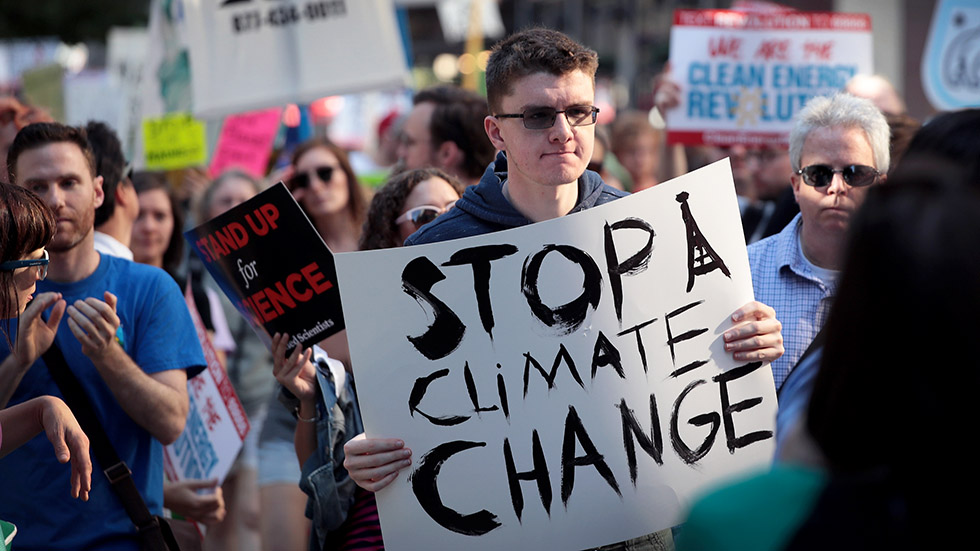Overnight Energy & Environment — Effort to repeal Arctic refuge drilling advances
Welcome to Friday’s Overnight Energy & Environment, your source for the latest news focused on energy, the environment and beyond. Subscribe here: digital-staging.thehill.com/newsletter-signup.
Today we’re looking at The House Natural Resources Committee advancing approving its reconciliation package along party lines, some E&E components of the House Agriculture Committee’s proposal and Harvard’s divestment from fossil fuels.
For The Hill, we’re Rachel Frazin and Zack Budryk. Write to us with tips: rfrazin@digital-staging.thehill.com and zbudryk@digital-staging.thehill.com. Follow us on Twitter: @RachelFrazin and @BudrykZack.
Let’s jump in.
Natural Resources approves spending bill
The House Natural Resources Committee advanced its portion of the reconciliation bill in a party-line vote late Thursday.
What does this thing do again? The committee’s $25.6 billion slice of the $3.5 trillion Democratic spending bill includes a repeal of a requirement to sell leases for drilling in the Arctic National Wildlife Refuge and ban offshore drilling in the Atlantic and Pacific oceans, as well as the Eastern Gulf of Mexico.
The measure would raise money by increasing the royalties that fossil fuel companies pay to drill on federal lands and in federal waters and by creating a royalty payment for hard rock mining.
And it would spend money on the creation of a Civilian Climate Corps jobs program.
Some final tallies: It advanced out of the committee by a 24-13 vote.
The approval came after two days of hearings on the legislation — a nearly 9-hour session last week and a 9.5-hour session this week.
Read more about the bill advancing here.
Ag panel bill includes $2B for climate corps
 The House Agriculture Committee’s $65.75 billion portion of the congressional reconciliation package includes more than $20 billion in energy and environmental priorities, including a Civilian Climate Corps and increased funds grants and funds for renewable energy in rural communities, according to a fact sheet released by the committee Friday.
The House Agriculture Committee’s $65.75 billion portion of the congressional reconciliation package includes more than $20 billion in energy and environmental priorities, including a Civilian Climate Corps and increased funds grants and funds for renewable energy in rural communities, according to a fact sheet released by the committee Friday.The specifics include $2.25 billion for the creation of a Civilian Climate Corps, a key agenda item for the Biden administration. It also includes $9.9 billion for rural energy and to transition rural utilities to renewable electricity, along with nearly $1 billion for biofuel infrastructure.
The package’s forestry aspects also seek to address the particularly intense wildfire seasons of recent years, providing $9 billion for wildfire resilience and forest restoration on nonfederal lands as well as more than $10 billion for hazardous fuels treatment, according to the committee.
“These timely investments will provide resources to mitigate climate change, improve quality of life in rural communities, and commit millions of dollars to agricultural education across the country,” the committee’s Democratic majority said in a statement.
The release comes the day after the House Natural Resources Committee advanced its own $25.6 billion portion of the bill, which also includes funds for a Civilian Climate Corps.
Harvard divests from fossil fuels

Harvard University on Thursday announced it will pull its $42-billion investment from fossil fuel industries, making it one of the wealthiest and most prestigious institutions to do so.
In a letter, Harvard President Bacow said the university has already withdrawn all direct investments in fossil fuel companies and will also foreswear any future investments, as well as allowing indirect investments through private equity to expire.
Bacow also said Harvard has set a target of net-zero greenhouse gas emissions by July of next year.
The move follows a lengthy effort. The announcement follows a concerted campaign by student activists, who have called for divestment through protests and sit-ins as well as a legal complaint earlier this year.
In March, the group Fossil Fuel Divest Harvard alleged the university’s investments were a violation of the Uniform Prudent Management of Institutional Funds Act, which governs investments by nonprofit institutions.
Ilana Cohen, a spokesperson for the group, told The Hill in an interview that the group’s “first and foremost priority right now is making sure Harvard actually follows through” on complete divestment, including its indirect investments.
Despite the pledge, she said, the administration has not put forth a timeline for indirect investments that is “swift and reflective of what climate and environmental justice demands.”
Read more about the divestment here.
ENVIRONMENT GOES INTERNATIONAL
- Climate Envoy John Kerry will travel to India on Sunday through Tuesday, according to the State Department. He’s slated to meet with government officials and private sector leaders on climate and will launch a “Climate Action and Finance Mobilization Dialogue” that the department said is one of two tracks of a partnership between India and the U.S.
- EPA Administrator Michael Regan on Friday met with officials from Canada and Mexico. According to the agency, they launched three new initiatives: “working on mitigating ‘black carbon’.. addressing ‘ghost’ fishing gear in marine ecosystems; and supporting environmental education.”
ON TAP NEXT WEEK
On Monday:
- The House Energy and Commerce Committee will mark up its portion of the reconciliation bill
On Wednesday:
- The Senate Environment and Public Works Committee will vote on whether to advance the following nominees:Jeffrey Prieto to be the EPA’s top lawyer; Michael Connor to be Assistant Secretary of the Army for Civil Works, which oversees activities at the Army Corps of Engineers and Stephen Owens, Jennifer Sass and Sylvia Johnson to be members of the Chemical Safety and Hazard Investigation Board
- The Senate EPW Committee will also hold a hearing on the nominations of Amanda Howe, David Uhlmann and Carlton Waterhouse for top roles at the EPA’s Mission Support, Enforcement and Compliance Assurance and Land and Emergency Management offices respectively.
WHAT WE’RE READING
-
The next Flint? Groups call for EPA to intervene, provide safe water to Mich. city, The Detroit Free Press reports
-
Climate Change Is Making Some Species Of Animals Shape-Shift, NPR reports
-
How energy could help Liz Cheney regain her political footing, E&E News reports
-
Computers ‘worse for environment than plane travel’, The Independent reports
-
And finally, something offbeat and off-beat: Prison stripes (a follow up to yesterday’s offbeat).
That’s it for today, thanks for reading. Check out The Hill’s energy & environment page for the latest news and coverage. We’ll see you Monday.
{mosads}
Copyright 2024 Nexstar Media Inc. All rights reserved. This material may not be published, broadcast, rewritten, or redistributed..








